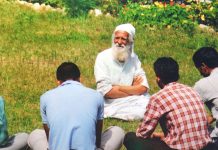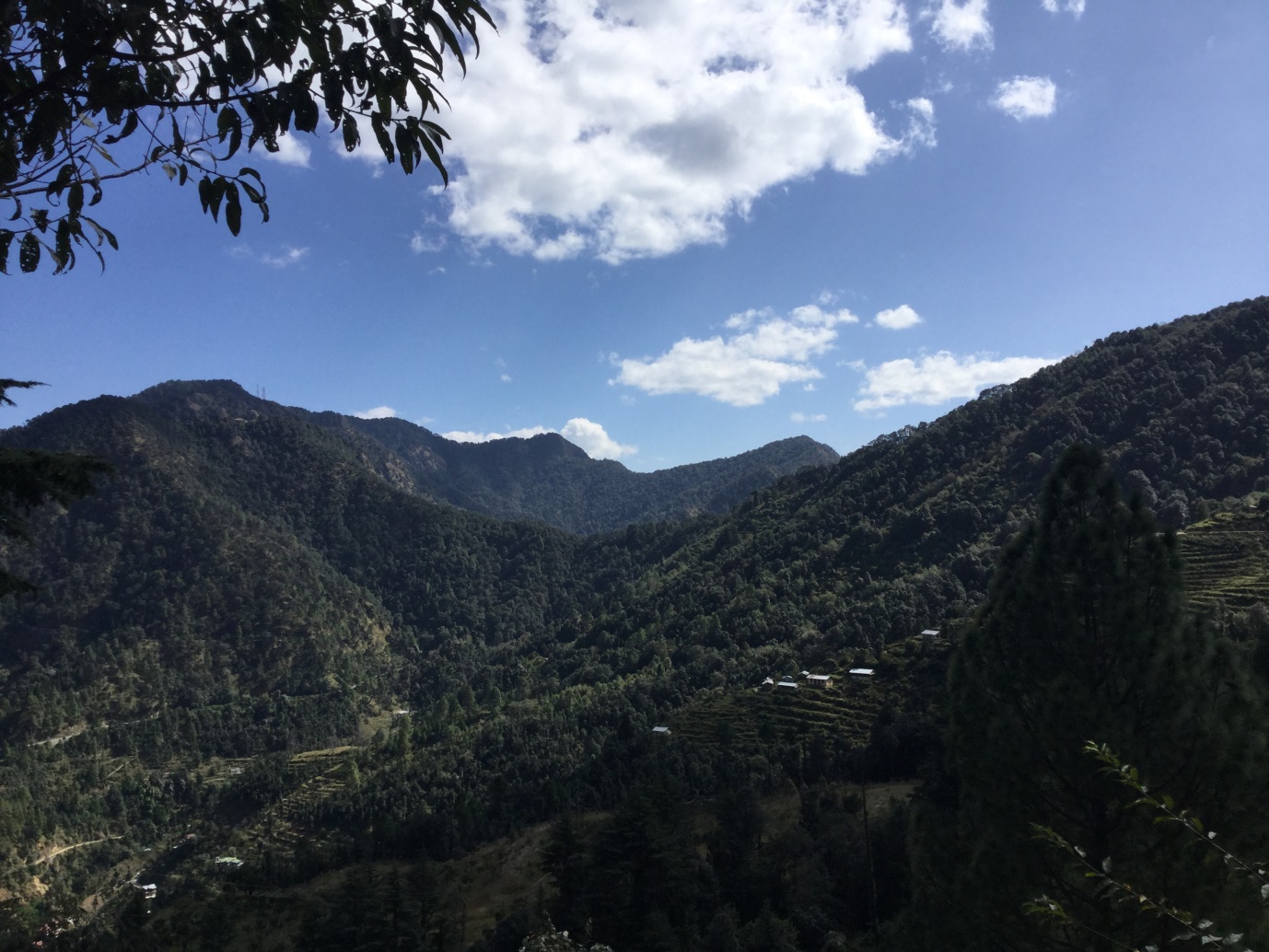Sunderlal Bahuguna , the famous environmentalist of India who passed away on May 21 recently at the age of 94, is being widely remembered for his great contributions to protecting forests and rivers as well contributions to human welfare at several levels. However it is well to also remember at this juncture that for close to seven decades Vimla, his wife, had contributed greatly to all these efforts , and in struggles and achievements, enormous difficulties and big accomplishments, they were always together.
Vimla, although very weak, continues to be associated even now with noble causes to the extent her health permits.
Their life together provides a great example of working together with a deep common understanding of advancing shared aims of protecting environment and welfare of humanity. This life of shared vision, aims, work, responsibilities, difficulties, risks, sorrows and joys joys continued for seven decades and in the process much was achieved. There is much to learn from this life and this relationship based on love, respect and equality.
Around the time of marriage Sunderlal was a fast rising star in the political and social life of Uttarakhand. Vimla led a more austere life of a social activist being groomed by Sarla Behn, a senior Gandhian activist and freedom fighter. When the first talk of marriage appeared, people invariably looked at the match from the perspective of the prospective groom. Oh, they said, his political career will be further advanced by marrying such a brilliant girl with experience of working among people.
But Vimla had entirely different ideas. She greatly valued the training and inspiration she had received from Sarla Behn to serve people living a difficult life in remote villages. She had been thinking all the time of serving people in this way . She had no intention of going back on her commitment just because a marriage proposal had appeared. She liked Sunderlal whom she had met at some meetings but just because of this she could not go back on her commitments. So she told Sunderlal clearly that they can marry if he gives up the limelight of political life and agrees to serve people in remote villages.
To the surprise of most people Sunderlal agreed and after a simple marriage the couple found a place in a remote village Silyara and settled down to a rigorous life of serving people here in various ways.
After a few years of this life the Silyara ashram was well-established and became a hub for creating and training more social activists. Together they also participated in anti-liquor and other movements.
Then due to compelling factors Sunderlal had to go on visits to many remote villages. With common understanding Vimla took over most responsibilities of ashram work.
As the Chipko movement for saving forests spread to more villages, Vimla was there to provide base support. When Sunderlal Bahuguna started a long fast in Badiyargad forest to mobilize support for the demand of a moratorium on felling of green trees, conditions were very difficult and it was getting difficult to mobilize support in the remote Himalayan forest . It was at this stage that Vimla gathered several village women and they together camped in the forest for several days till success was achieved.
Another critical time in their life came when the struggle against the Tehri Dam Project entered a very difficult phase and Sunderlal took a pledge that he will not go to his home till the aim of stopping the dam project was achieved. Then an earthquake struck and the ashram was badly damaged. In difficult times repair had to be arranged, books and important records had to be saved.
A the struggle entered its final stage, Sunderlal camped on the bank of the Bhagirathi river . After some time Vimla also joined him.
The movement could not stop the dam project but immense public consciousness on the entire broader issue of dams in the Himalayan region could be created in the course of the movement. The main demand of stopping the Tehri dam project received the support of some of the topmost experts, including those represented in some officially constituted expert committees, and the dam project could go ahead only on the basis of highly unethical manipulations.
Their life together ,which started with sharing the Gandhian vision of continuing to serve even in most difficult conditions , continued this walk this path for several decades.
In recent years the couple, who now needed medical check-ups and medicines very regularly, came to live with at their daughters’s home in Dehradun.
One hopes that Vimla Ji will continue to spread their shared vision within the limits of her fragile health.
Bharat Dogra is a journalist and author. His recent books include Man Over Machine ( Gandhian ideas for our times ) and Vimla and Sunderlal Bahuguna– Chipko Movement and the Struggle against Tehri Dam Project.














